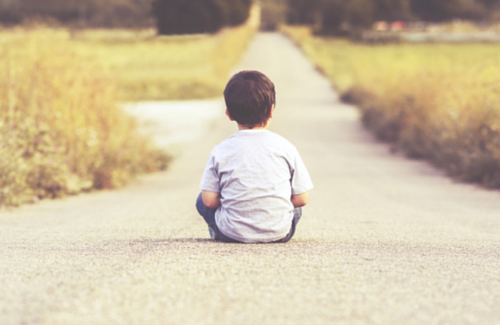Loving the unlovable is hard – especially when you are a kid.
“Roof, Roof, Roof, Roof,” my classmates yelled.
As an adult it seems silly, but in fifth grade, this chanting of my name, an intentional variation at that, devastated me with embarrassment and shame.
Words, just as much as sticks and stones, do leave their mark.
Kids can be cruel. Like most young kids at the time, I was sensitive and extremely impressionable. The combination proved to break me.
And so I did what most fifth graders would do – I cried my eyes out!
The reality of bullying is no different today. In fact, I would venture to guess, it is worse. It seems that over the past few years, we have seen an increased awareness to the threat of bullying. Thankfully, many people, students included, are working together to help abate the real threat that bullying is to all children who step on a school campus.
According to stopbullying.gov, between 1 in 4 and 1 in 3 students are bullied, with the prevalence seen mostly in middle school. Teaching our children how to handle bullies is incredibly important because they or their friends will likely encounter a bully or two in the classroom, locker room, playground, or workplace.
There are some practical lessons all parents should teach their children when it comes to dealing with bullies. The first two are rather obvious, but the third one is a bit more challenging.
1. Don’t be afraid to tell a teacher, coach, or instructor
Bullies often operate out of intimidation. A bully finds success when kids stay silent. So, raise the conversation with your kids and their friends and encourage them to tell an adult if they see or hear of any kind of bullying behavior.
2. Don’t follow the crowd
Peer pressure starts early. It is hard to stand out and stand against the crowd. So help your child discover how God had used men and women of courage to make a difference. Stories of Daniel, Esther, Shadrach, Meshach, and Abednego are just a few of the great biblical heroes of faith who weren’t afraid to speak up and go against the crowd. Reinforce that courage is not a lack of fear, but acting rightly in spite of fear.
3. Don’t be afraid to love the unlovable
Perhaps one of the toughest lessons to teach our kids is the lesson Jesus taught – love our enemies. In Matthew 5:43-44, Jesus taught His disciples the following:
You have heard that it was said, ‘Love your neighbor and hate your enemy.’ But I tell you, love your enemies and pray for those who persecute you.
Encourage your kids to see that many bullies are not really strong, but hurting on the inside. They too are desperately in need of God’s love. As hard as it may seem, Jesus was teaching that love is stronger than hate. So help your children to see a bully differently. Teach them to pray for bullies and the people who may mistreat them at school, always looking for appropriate (and safe) opportunities to show kindness. Also, remind your children that just like God changes our hearts, He can also change the heart of the bully.
For an enlightening read for your tween from the point of view of the bully, Sorry I’m Not Sorry, is a great choice! This newly released book is Book 3 of a trilogy of books from bestselling author Nancy Rue. Each book in the Mean Girl Makeover trilogy focuses on a different character’s point of view. This particular book, Sorry I’m Not Sorry is a story that exposes the underlying issues that the bully faces causing her to act out towards other kids, but ultimately reveals the biblical truth that God can change anyone.
If you are anything like me, you’ll agree that it’s much easier to just teach our kids stay far away from bullies! While certainly appropriate in many situations, we cannot miss the lessons to teach our children to stand up, speak out, and love the unlovable! After all, this is how God first loved us.
* * *
Your Turn
We all grow up and reach the point when we have to ask how to handle the bully. How have you taught your children to handle bullies and bullying?


